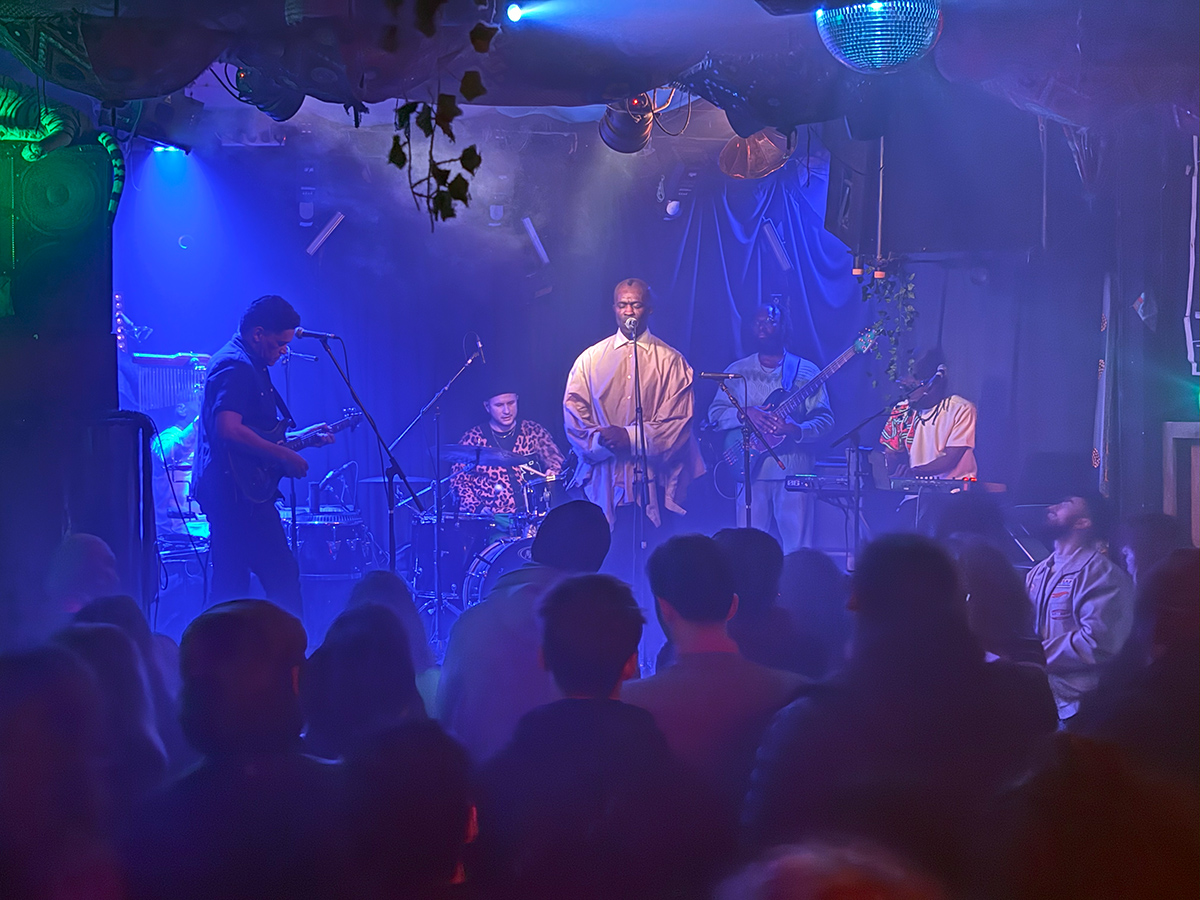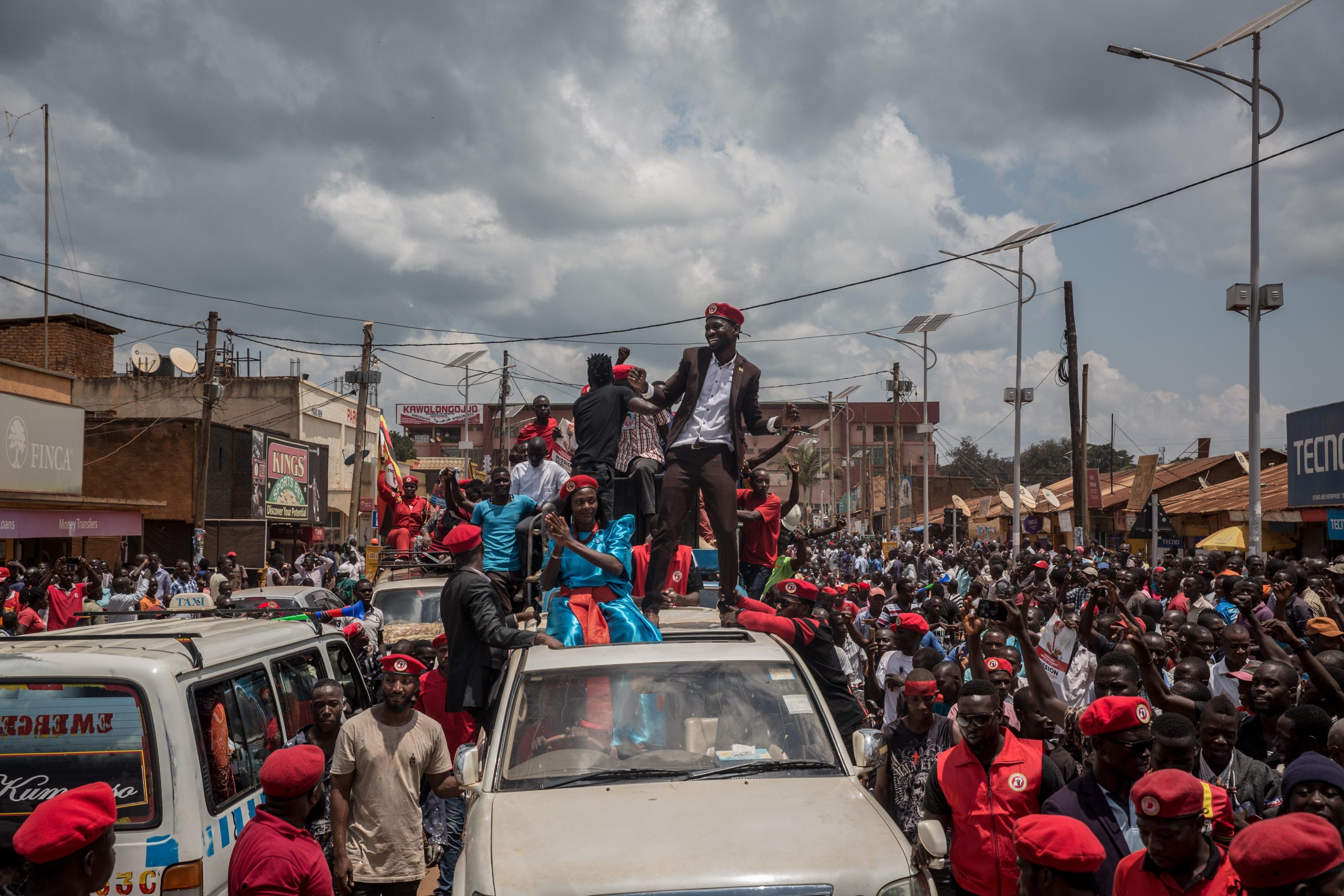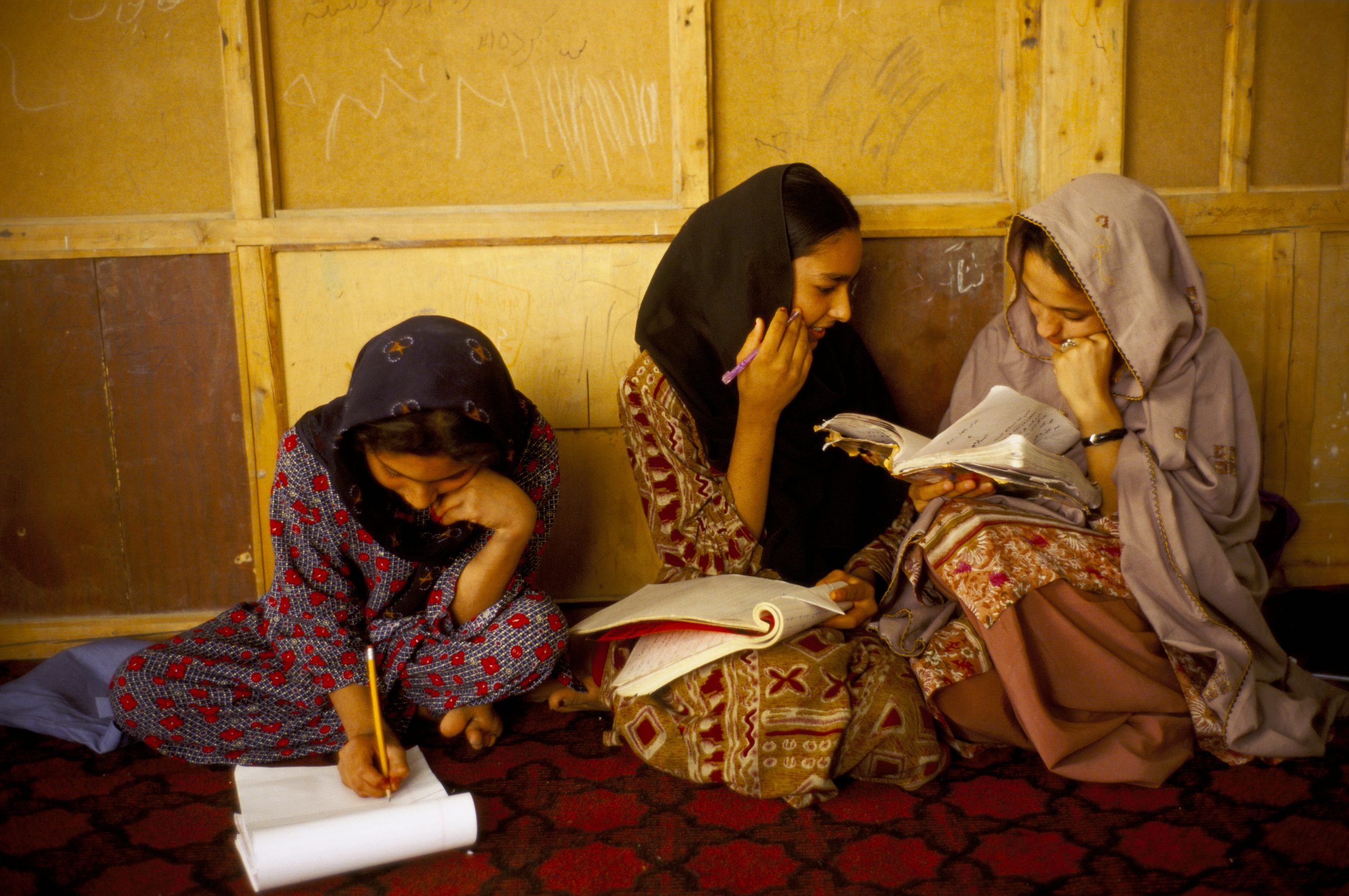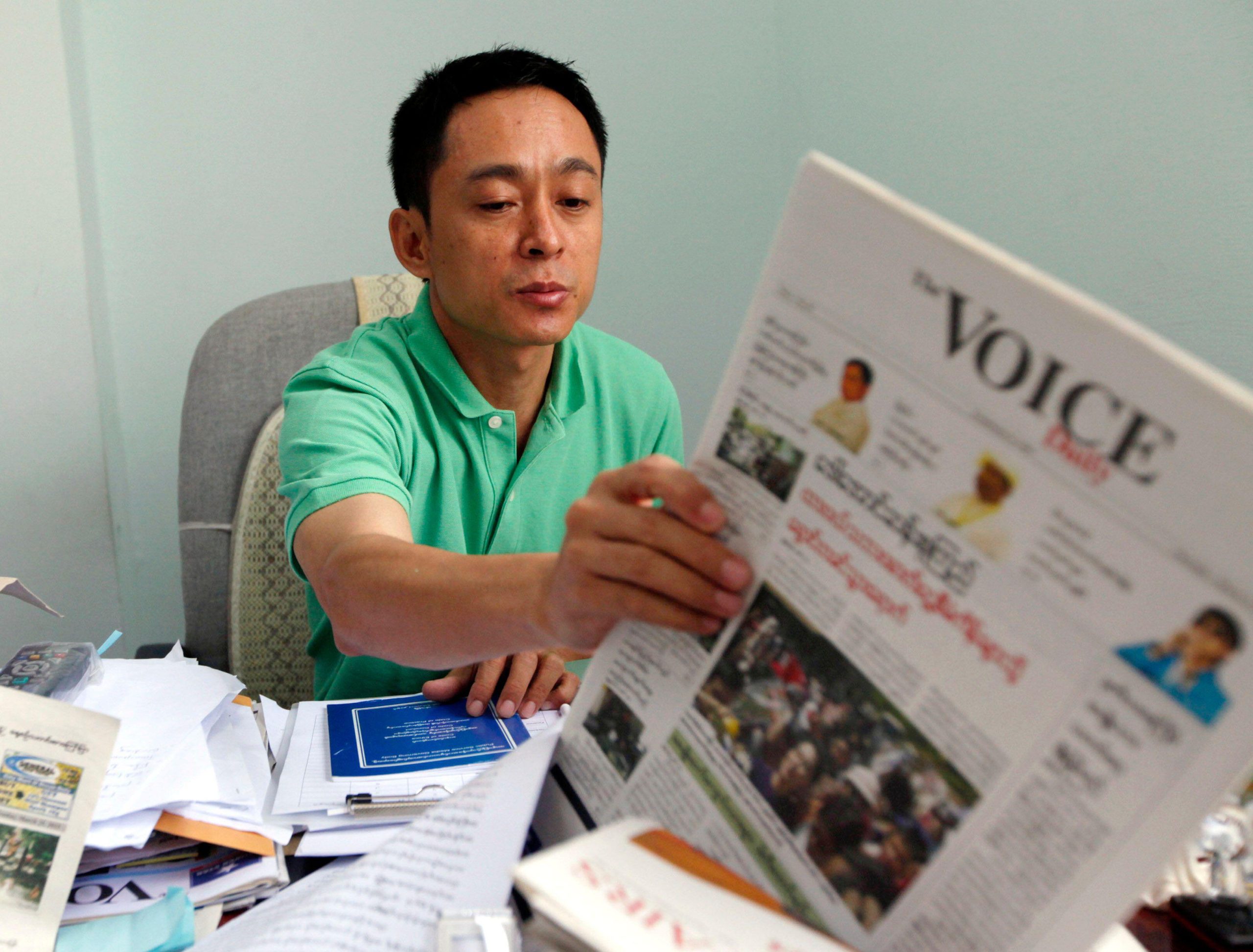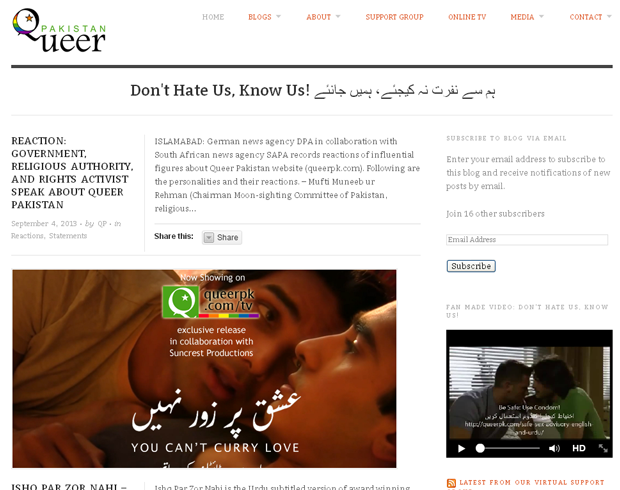
Pakistan’s move to ban access to a gay website reflects the conservative society’s inability to accept a “larger world view”, activists say.
“Freedom of speech remains in peril and online privacy and security is almost nonexistent in the country making dissidents worry for their and their families’ safety”, Nighat Dad, a lawyer working with the Digital Rights Foundation in Pakistan, said.
Dad was referring to last month’s blocking of a gay website www.queerpk.com by the Pakistan Telecommunication Authority for being “against Islam”.
But for others belonging to the LGBTQ community, the ban has not come as a big surprise.
“They banned YouTube, you think Queerpk would count at all?” said banker Imran, requesting only his first name to be used.
“It was quite expected and shows how immature this society is and how our government is keen on pandering to the idiocies of the worst among us”, said Ali (also preferring to use just his first name).
Kashif Khan, a gay university teacher, considers the website ban “just the tip of the iceberg” of a certain “mindset” that holds sway within the Pakistani society.
“We, as minorities, are not the only one affected by this heightened sense of self righteousness and religiosity which stems from this complete inability to entertain and appreciate any world view other than our own,” he said.
Further, he points out: “The closing of the mind and quashing of this spirit of inquiry is probably because a lot of beliefs that we have held sacred might not stand the test of rationality and empirical evidence.”
But Ali, for one, does not think it was a great idea for a group of LGBTQ community to try and create a space a space for themselves in public domain.
“Gay people here do not want a gay rights movement because this society isn’t the kind of society in which a gay rights movement can take place,” he said.
For too long, the LGBTQ community has remained invisible. They continue to enjoy both peace and relative freedom, but many fear that the moment they try to rock the boat and start demanding their rights, they may invite the attention of the religious extremist elements within society -much to their detriment.
Even the Pakistani law refuses to take a tolerant view of their existence. Article 377 of the Pakistan Penal Code prescribes up to 10 years in jail and a fine for those caught engaged in homosexual activity. Consenting sex between a man and a woman outside of marriage is criminalised and punishment awarded.
On the other hand, safeguarding citizens’ privacy is enshrined in Pakistan’s constitution, which calls “privacy rights” inviolable.
It is for that very reason Shahzad Ahmad, country director of Bytes For All, Pakistan, says that the Pakistani society “first acknowledge and recognise that the LGBTQ community exists”. It is also important, he said, to give more space to such portals where the gay community can discuss their issues in a “mature, understandable and engaging way”.
Even for Queerpk team the ban was not unexpected “given the backlash the website had received online and ‘reporting’ to PTA”. The team was prepared with a Plan B. “We mirrored the website onto a new domain, routing all traffic to the new website,” the website’s spokesperson (who didn’t want his name to be made public) wrote in an email exchange.
In addition, the website ban has not affected the netizens visiting the website in any way: “It hasn’t! If anything, it has brought together several thousand more users, hundreds of whom have written to us in appreciation and support, many of whom were not connected to any support online or offline. So for all reasons, the blockade has worked in our favour,” the spokesperson added.
When it comes to freedom of expression, Pakistan is not the most generous of countries. Freedom House’s annual report Freedom on the Net 2013 put Pakistan among the top ten countries where internet and digital media freedom is curbed.
“The recent ban of Pakistani gay websites is a clear sign that the new government is following what the past governments have been doing in Pakistan,” Dad said.
According to Ahmad the government’s “moral policing policy” curbs alternate and progressive discourse was the reason behind the blockade of Queerpk. This is not the first time that gay websites have been targeted, he explains: “I remember, another LGBTQ social networking website ManJam was banned in Pakistan and that ban still exists for Pakistani users.”
Currently there are over a dozen dating and social networking websites aimed at the Pakistani LGBTQ community. But the case of QueerpK is different, say experts, because it was more than a networking website. “Many important and relevant issues were being discussed on the website and an alternate discourse on sexual minorities’ rights was, for the first time, discussed in a very mature manner in a conservative society like Pakistan,” said Ahmad.
“With the government’s internet censorship policies over last few years it is quite evident that this new medium for communication for LGBTQ community won’t last long,” he added.
For that reason, BFA feels compelled to work with different international organisations in support of Queerpk to voice its concern against the ban. “We have also raised this issue at different forums and are also planning to raise it at the Internet Governance Forum,” Shahzad told Index.
This article was originally posted on 15 Oct 2013 at indexoncensorship.org

